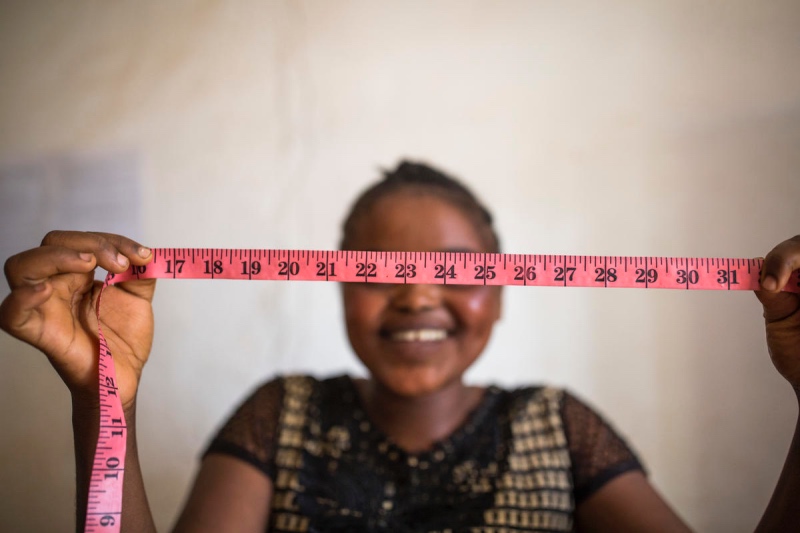Children as young as five are fighting on the frontlines in countries including the Democratic Republic of Congo, according to research commissioned by World Vision.
The research, released to mark Red Hand Day – an international day against the use of child soldiers, found that children have participated in conflicts in at least 18 countries since 2016 and, despite the classification of the use of child soldiers as a war crime, tens of thousands are still being used as soldiers by armed forces and armed groups.

PICTURE: Patrick Meinhardt, World Vision
Now 18-years-old, “Lea” was abducted by Mai-Mai militia in the Democratic Republic of Congo and spent three years as a child soldier.
“One day I escaped,” she recalls. “I asked for permission to go for a walk and ran away. Luckily they didn’t catch me.”
She is now undertaking sewing classes at a World Vision-supported facility in Butembo in the country’s north-east for children and young people who have been injured and affected by armed conflict.
“I really like it. I have many friends here now…I want to learn to sew properly. I hope one day to have my own shop and provide for my child. I want my child to go to school, that’s my first wish. I don’t want him to be illiterate like me.”
Child soldiers – four out of 10 of whom are girls – are often used on the frontlines as human shields, suicide bombers, spies and sexual slaves. UN data shows that the five countries leading the recruitment of child soldiers in 2017 were Somalia, South Sudan, Nigeria, The Democratic Republic of Congo and Syria.
The World Vision research, which draws specifically on data from the DRC, the Central African Republic, Colombia, South Sudan and Iraq, found that while some children are forced into fighting, others join armed forces or groups for a variety of reasons including as a way out of poverty or for protection from other groups.
Tim Costello, chief advocate at World Vision Australia, said the research showed that for many children there was no real choice about joining armed groups.
“It’s kill or be killed. They’re promised education, protection, a future, an income for their families and then lured into fighting with an idea of these hopes, hopes to belong,” he said. “Yet tragically once they’re involved, it’s just deadly, dangerous soldiering and very difficult to escape.”
World Vision is calling for all armed forces to ban the recruitment of children under the age of 18 and for child protection and associated services in countries where child soldiers are frequently used to be properly resourced.
“We need the international community – including the Australian Government – to increase multi-year funding for child protection, particularly for this sector,” said Costello. “Former child soldiers desperately need education, protection, medical and psychosocial support or they are at risk of returning to the battlefield. Yet in places countries like the Democratic Republic of the Congo, these very sectors of education and humanitarian response are severely underfunded.”
World Vision has launched a public petition calling on the Australian Government to do more to address the crisis in the Democratic Republic of Congo including the plight of child soldiers there.
To donate to help child soldiers, head to www.worldvision.com.au/global-issues/world-emergencies/congo-kasai-conflict.





